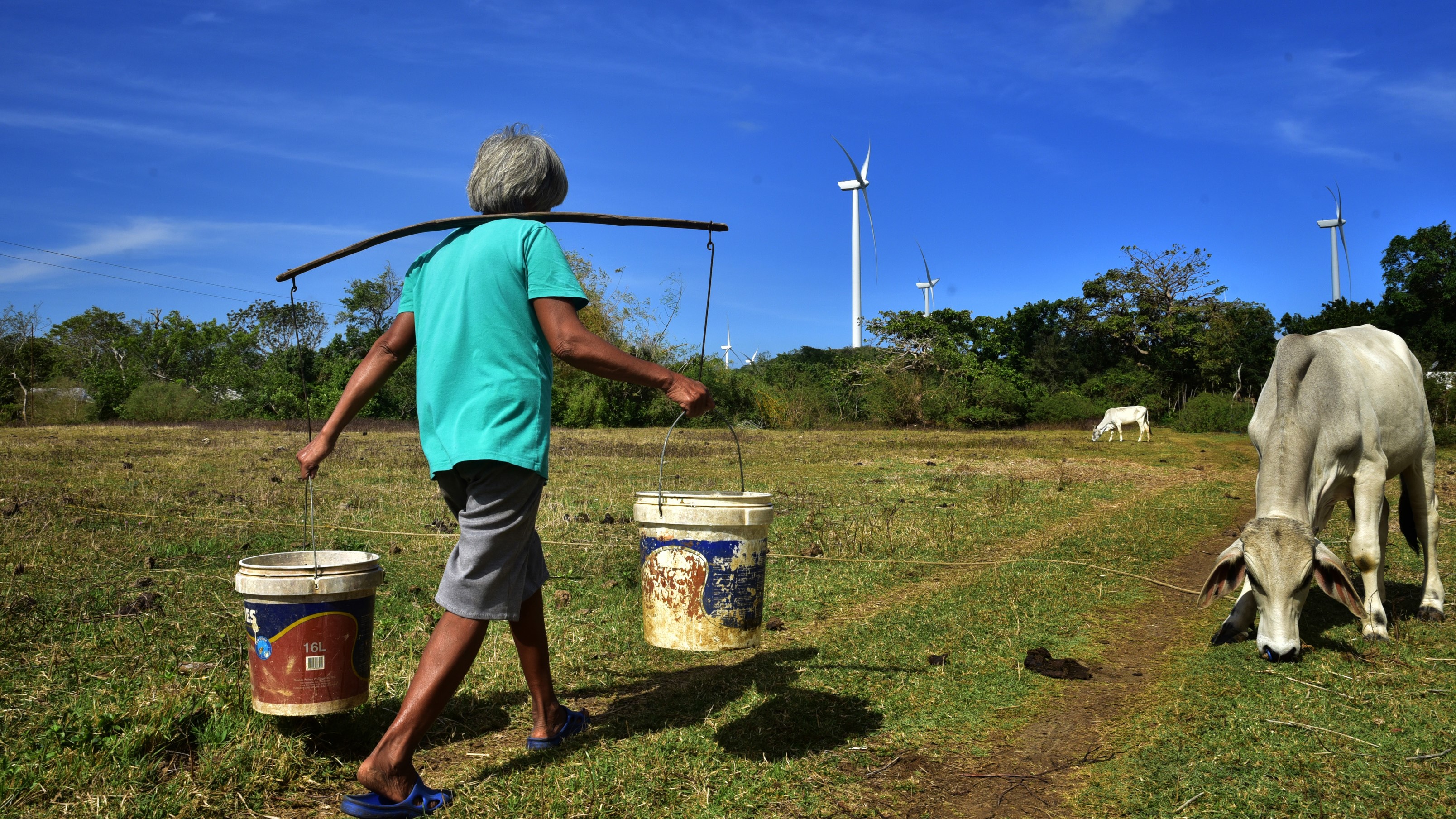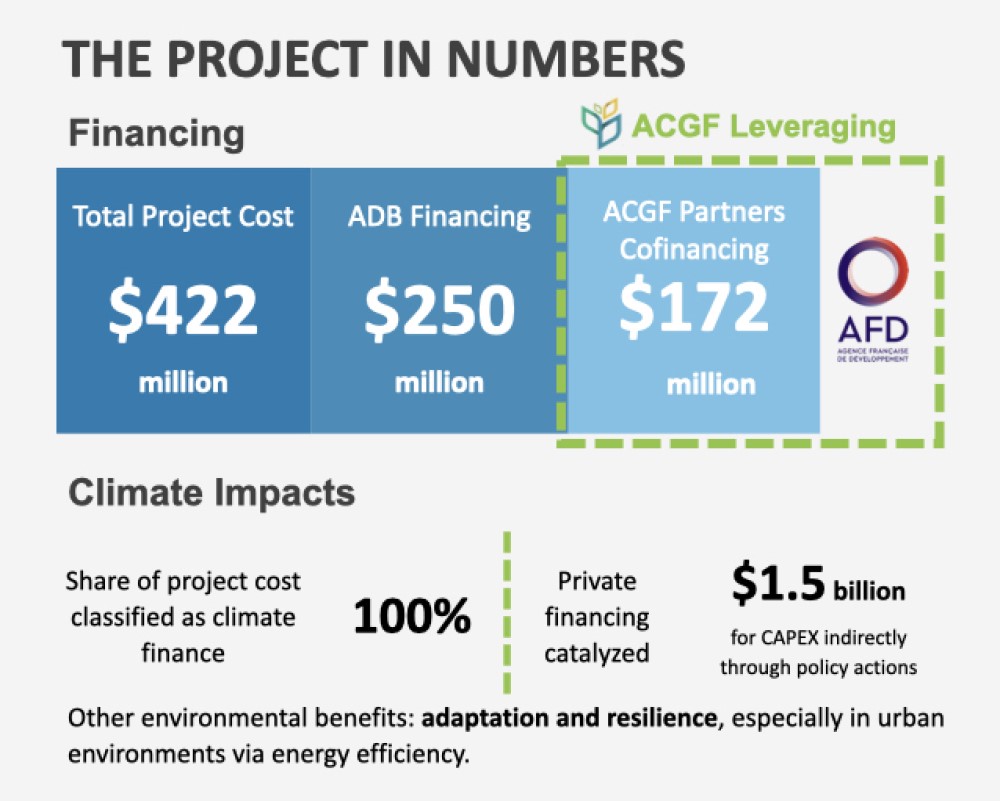
The project seeks to increase and intensify actions to transform key sectors toward a climate-resilient and low-carbon economy. Photo credit: ADB.
The project seeks to increase and intensify actions to transform key sectors toward a climate-resilient and low-carbon economy.
![]() ISSUE: Climate change is adversely affecting agriculture, natural resources, and the environment, and results in heightened economic vulnerability for poor households.
ISSUE: Climate change is adversely affecting agriculture, natural resources, and the environment, and results in heightened economic vulnerability for poor households.
The Philippines is highly vulnerable to climate change, which manifests through rising temperatures, variability in rainfall, sea level rise, increased groundwater salinity, and increased frequency and intensity of extreme weather events. The Global Climate Risk Index 2021 ranked the Philippines fourth among countries most affected by extreme weather globally from 2000 to 2019. The pandemic heightened the country’s vulnerability to the economic impact of severe weather events. Poorer households are disproportionately affected, especially in urban areas and along the archipelago’s vast coastal areas. Although national climate policies are in place, their implementation across sectors and at the local government level have been slow, both for crosscutting climate policies and targets, and in key areas such as climate resilience of food security and ecosystems. The transition from fossil fuels to clean energy sources remains affected by continued reliance on coal power and lack of incentives to transition to renewable energy sources.
![]() SOLUTION: Transform key sectors and enable a climate-resilient and low-carbon economy.
SOLUTION: Transform key sectors and enable a climate-resilient and low-carbon economy.
The Climate Change Action Program (Subprogram 1) was approved for financing by ADB in May 2022, as its first dedicated climate action policy-based loan. It addresses climate change as its core objective and will help the Government of the Philippines implement and deliver its NDCs under the Paris Agreement and intensify efforts to transform vulnerable sectors toward a climate-resilient and low-carbon economy. The project focuses on sectors that are of national priority for climate action, targeting adaptation in highly vulnerable sectors such as agriculture, natural resources, and environment, as well as mitigation in emissions-intensive sectors such as energy and transport. A programmatic approach will enable sequenced reforms to strengthen institutions and integrate climate action by strengthening planning, financing, and institutional linkages for climate action, enhancing resilience to climate impacts, and strengthening low-carbon pathways.
![]() HOW DID THE GFH AND ACGF HELP?
HOW DID THE GFH AND ACGF HELP?
The ACGF, managed by SERD’s GFH, co-lead the Subprogram 1 preparation in close coordination with two ADB Sector Groups: Agriculture, Food, Nature, and Rural Development, and Energy. The ACGF supported the central bank with technical assistance to launch its Sustainable Banking Roadmap, bringing together different strands of policy on greening the financial system in the country, and a translation of the country’s NDC in selected sectors into actionable implementation plans. The support also includes engagement of climate experts to assist the Philippines in the finalization of its NDC Implementation Plan, from validation of the overall framework for the plan, to formulation and validation of sector implementation and investment plans through assessments of the agriculture, natural resources and environment, and waste sectors, including cost estimations.
